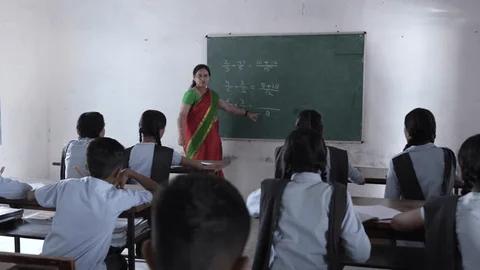The Rajasthan High Court recently ruled against the transfer of a Grade III teacher, who was originally qualified to teach Social Studies but was transferred to teach English. The court stated that forcing a teacher to instruct a subject they are not qualified in can lead to serious consequences for both the teacher and the students. Such a transfer could also violate students' fundamental right to education under Article 21A of the Constitution.
The case involved a teacher appointed in 2006 without a specified subject. Although English was a compulsory subject during her graduation, her optional subjects were history and economics, making her qualified for Social Studies. In 2019, during a staff reorganization, she was declared surplus and transferred twice as an English teacher. She challenged this transfer, arguing that she was wrongly assigned to teach English, a subject in which she lacked the necessary qualifications.
Read Also:- Chhattisgarh High Court Confirms Penalty for SBI Employee in Sexual Harassment Case
The single bench of the Rajasthan High Court had earlier dismissed her petition, stating that her appointment did not specify any sub-designation and that subject assignments could be made according to the school's needs. However, the division bench, comprising Justice Shree Chandrashekhar and Justice Saneep Shah, overturned that decision.
The court referred to official guidelines from the Director of Primary Education, Bikaner (2016), which clearly state that a teacher should teach the optional subject cleared during graduation, not the compulsory one. The court also examined Rule 266 of the Rajasthan Panchayati Raj Rules and the Rajasthan Educational Services Rules 2021. Both sets of rules emphasize that teachers must be posted according to their qualifications.
The court highlighted that forcing the teacher to instruct English could result in disciplinary action if she fails to teach effectively. More importantly, it would deny students the right to be taught by a qualified educator, infringing on their constitutional right under Article 21A, which guarantees free and compulsory education.
The court emphasized:
“In case she is not able to impart education properly in subject-English, the same may entail adverse civil consequences including departmental proceeding. Further, the students will be denied the benefit of a qualified teacher to teach the subject and that by itself would be a violation of Article 21-A of the Constitution of India.”
Consequently, the court set aside both the transfer order and the single bench’s ruling. It directed the state to reassign the teacher to her original subject, Social Sciences, either at her current location or a nearby school.
Title: Smt. Gauri v the State of Rajasthan & Ors.















